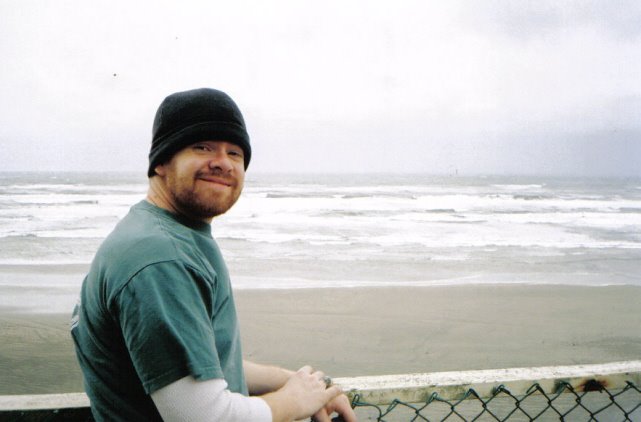Teacher's Second Day.
This day was not so bad, but I had my first student-teacher confrontation. Best to get these things out of the way early to know who's looking to make waves versus learn; but this was not the case at all. What I learned today is this:
1. Not all students want help. By making all the journal entries for the students the assigning them randomly with the option to switch before the end of class, I thought I was doing them a favor. They have so much homework to do, and with clinicals, write-ups and such, adding a written report over a journal article is another hassle an already organizational anarchy. However, some rebelled at the idea that this was assigned to them versus something they could look up on their own. I could understand that logic. Best to just let the student do their own thing then, I suppose. However, my instinct is to make this nothing they could avoid. Procrastination is so easily involved in programs such as these because there's so much to learn. I told the one or two that had issues that if they don't like their articles, they could bring one to me for approval. Otherwise, write and be done with it.
2. Make the slides simpler, but with more test material on them. They look at these the most, use that to your advantage... and theirs.
There's a lot to the job of teaching. I have already discovered a great deal that letting the students come to me as equally as I come to them is the best way to look at the process of teaching. One of the other instructors insists that teachers are not meant to be the friends of their students. In some sense I understand that stance. It removes the biases that can be created when friendship and mentorship differ. However, these are not just students taking a course to complete requirements for e greater purpose. The course I teach is the core area of information and practical knowledge needed to perform well in their future careers. More importantly, these students are my future colleagues. How I treat them now, will reflect on what they think of the profession we will all do later in life.
Respect shown now will last in them so long as they work as surgical technologists. Perhaps my co-instructors know this at heart, but I doubt they reflect this truth based on their open considerations toward the students.
Another learning point for the new teacher.
1. Not all students want help. By making all the journal entries for the students the assigning them randomly with the option to switch before the end of class, I thought I was doing them a favor. They have so much homework to do, and with clinicals, write-ups and such, adding a written report over a journal article is another hassle an already organizational anarchy. However, some rebelled at the idea that this was assigned to them versus something they could look up on their own. I could understand that logic. Best to just let the student do their own thing then, I suppose. However, my instinct is to make this nothing they could avoid. Procrastination is so easily involved in programs such as these because there's so much to learn. I told the one or two that had issues that if they don't like their articles, they could bring one to me for approval. Otherwise, write and be done with it.
2. Make the slides simpler, but with more test material on them. They look at these the most, use that to your advantage... and theirs.
There's a lot to the job of teaching. I have already discovered a great deal that letting the students come to me as equally as I come to them is the best way to look at the process of teaching. One of the other instructors insists that teachers are not meant to be the friends of their students. In some sense I understand that stance. It removes the biases that can be created when friendship and mentorship differ. However, these are not just students taking a course to complete requirements for e greater purpose. The course I teach is the core area of information and practical knowledge needed to perform well in their future careers. More importantly, these students are my future colleagues. How I treat them now, will reflect on what they think of the profession we will all do later in life.
Respect shown now will last in them so long as they work as surgical technologists. Perhaps my co-instructors know this at heart, but I doubt they reflect this truth based on their open considerations toward the students.
Another learning point for the new teacher.







<< Home